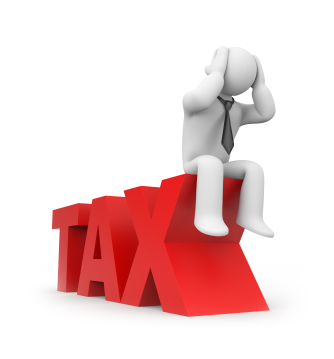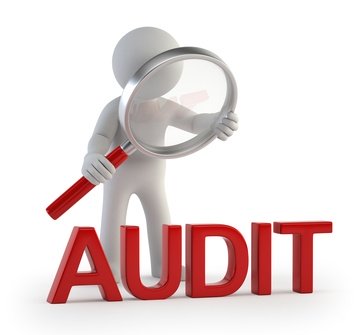- Canadian Bookkeeping Compliance Resource
- Basics of PST in BC
Basics Of PST in BC
By L.Kenway BComm CPB Retired
Edited April 12, 2024 | Published April 8, 2024 | Originally Published on Bookkeeping-Essentials.com in March 2013
WHAT'S IN THIS ARTICLE
Highlights | PST & WCB Deadlines | What's Taxable | Real Property Contractors | Small Sellers | Software Purchases | Taxable and Related Services | Out of Province Purchases | Exemptions | 2010 HST Transition Rules
NEXT IN PST SERIES >> How to Register For PST in BC
Introduction to The Basics of PST in BC

I attended a live presentation by PST specialists on March 22, 2013 hosted by IPBC* (Institute of Professional Bookkeepers of Canada). Here are the basics of PST in BC I came away with.
Note: Provincial Sales Tax (PST) returned to BC April 1, 2013 as a modernized Social Services Tax (SST) that was in effect prior to July 2010.
More >> If you have been notified about a PST Audit, learn what to expect during a PST audit.
*Side note: IPBC rebranded in June 2020 to CPB Canada.


British Columbia Tax Compliance Deadlines
This deadline table will be updated regularly. Last update April 8, 2024.
| Tax Collected | Reporting Period |
|---|---|
| More than $12,000 | Monthly only |
| $6,000 - $12,000 | Monthly or Quarterly |
| $3,000 - $6,000 | Quarterly or Semi-annual |
| $3,000 or less | Quarterly, semi-annual or annual |
| Tax Type | Reporting Period | Form to be Filed | Tax Filing Deadline | Payment Deadline |
|---|---|---|---|---|
| Monthly PST Return | Prior month | eTaxBC | Last day of month following | Last day of month following |
| Quarterly PST Return | Oct-Dec Jan-Mar Apr-Jun Jul-Sep |
eTaxBC | Jan 31 Apr 30 Jul 31 Oct 31 |
Jan 31 Apr 30 Jul 31 Oct 31 |
| Semi-Annual PST Return | Jan-Jun Jul-Dec |
eTaxBC | Last day of month following | Last day of month following |
| Annual PST Return | Prior year | eTaxBC | January 31 following | January 31 following |
| BACKWORK REMINDER April 1, 2013 |
BC HST Transitions Back To PST | |||
| BACKWORK REMINDER April 1, 2012 |
BC HST-PST Transitional Rules Relating To New Home Sales Began |
|||
| BACKWORK REMINDER May 1, 2010 |
BC (& Ontario) PST-HST Transitional Rules Began |
|||
| WorkSafeBC | ||||
| WCB Annual Report | Jan-Dec 2023 | Employer Payroll and Contract Labour Report 1810 |
early Mar 2024 | early Mar 2024 |
| WCB Quarterly Filer | Oct-Dec Jan-Mar Apr-Jun Jul-Sep |
Employer's Remittance Form 1820 | Jan 20 Apr 20 Jul 20 Oct 20 |
Jan 20 Apr 20 Jul 20 Oct 20 |
You should receive your base rate and classification unit letter from WCB for 2024 in January. If you haven't received it by the end of January, contact WCB or go online.
Quick Reference on The Basics of PST in BC
PST will remain substantially the same as the old SST (Social Service Tax) that was in effect prior to July 1, 2010 with permanent exemptions reinstated.
- You need a BC PST number. You now have the option to register and file your PST returns online using eTaxBC.
- Your filing date is the last day in the month following your reporting period. This due date is now in line with the GST filing due dates. Your reporting period is most likely monthly, but could be quarterly, semi-annually or annually.
- The act and regulations are now grouped by industry to make it easier to understand what laws and regulations apply to your business. PST Bulletins in the 100 series are industry specific; 200 series relate to exemptions; 300 series relate to applications of tax.
- The rules are now included in the regulations not the act itself. This makes it easier to change, requiring only an Order in Council instead of calling in the legislative assembly to enact change.
- The tax is payable when payment becomes due or paid. This is usually the earliest of (a) the day you issue the invoice, (a) the date of the invoice, (c) the day you should have issued the invoice, or (d) the day your customer must pay under a written agreement.
- You must self assess when required and remit the tax by the last day in the following month on a casual remittance form if you are not a PST registrant. PST registrants are supposed to report self assessments on their return ... see the line with Box F Tax Due on Purchases/Leases on form 400.
- Your best reference when looking for information ... other than my site of course ... is gov.bc.ca/pst.
Canadian Sales Tax Guide
PST in BC Articles - Table of Contents
Articles on PST in British Columbia when you are ready.
The Basics of PST in BC
What's Taxable
- purchases or lease of new and used goods
- software
- goods brought in for use in BC ... you need to self assess if PST was not charged. Businesses located outside of BC who regularly sell to customers in BC must register, collect and remit PST.
- short term accomodation
- legal and telecommunication services
- most services related to taxable goods
Download this very handy BC PST reference on the most common items. Keep it as a handy reference to refer to while updating your price lists and tax tables in your accounting software and cash registers.
It breaks down taxable items along with the applicable HST, GST and PST rates into three time periods:
- PST & GST before July 1, 2010
- During HST
- PST & GST after March 31, 2013
AUDIT READY
Effective April 1, 2013, you will have to show two tax rates on your invoices and receipts again ... the PST and GST. You cannot merge them into one amount.
This also means you will have to file two sales tax returns - one for GST and one for PST -instead of one for HST. The PST reports are now be due at the same time as the GST reports which is a bonus.
Unlike HST which only taxes at the consumer/retail level, PST is levied on production as well as consumption ... which means consumers pay tax upon tax upon tax (called cascading taxes) ... however many stages it takes to get the product to market. These "hidden" taxes are passed onto the consumer in the sale price.
The Basics of PST in BC
Real Property Contractors
Notice 2013-003 explains that you pay PST on goods used in fulfilling contracts, including lump sum payments OR time and materials, unless SPECIFIC CONDITIONS are met. IF these conditions are NOT met, you DO NOT charge PST to your customer.
Specfic Conditions If You Want To Charge The Customer PST

The customer MUST agree to sign an agreement that states they agree to pay BC PST on materials. Remember, services to real property aren't taxable. This agreement must be presigned and pre-written in advance (before works commences). It cannot be done as part of the invoice at the end of the contract.
This is a change from the "old PST" days. The change was driven by consumer requests for consistency when dealing with contractors. Consumers found it too confusing when some contractors charged PST while others didn't.
It is my understanding that the government plans to be pretty strict on enforcing this rule so let me say this again ... the customer is NOT taxed on the invoice. The contractor is now responsible for paying the PST.
One additional point; the contractor does not have to be a BC PST registrant because the contractor is paying the PST and is not collecting PST from the customer ... so there is no PST reporting requirement.
The Exception - Retail Sales
If you, as a real property contractor, sell something but don't install it ... such as a water heater ... this is considered a retail sale and you must charge your customer PST.
If you are not a PST registrant, you would remit the tax on a Casual Remittance form.
The Basics Of PST in BC
Notices vs Bulletins
Are you wondering what the difference is between a notice and a bulletin?
Notices and bulletins notify the taxpayer in layman's terms (plain English not laywer speak) that the law has or will be changing.
Notice releases are sent out to individual people / industries notifiying them that a law will be changing.
Bulletins are not sent out to individuals but publicly released announcing a change to the law. Bulletins incorporate any notices previously issued on the subject and replace notices.
PST Bulletins in the 100 series are industry specific; 200 series relate to exemptions; 300 series relate to applications of tax.
The Basics of PST in BC
Who is a small seller?
- You have a home based business in BC
- You make $10,000 or less of gross sales (taxable and not taxable)
- You sell taxable goods, software or services
- You don't sell liquor, vehicles, boats or aircraft on a regular basis
- You are not a lessor or independent contractor
- You don't offer four or more units of accommodation
The above criteria are "AND" conditions ... meaning you have to meet each requirment on the list to qualify as a small seller.
Small sellers have the option to register for BC PST.
Small Sellers - Audit Ready
- Small sellers do not have to register for or collect PST.
- If you have a store front, you are NOT a small seller.
The Basics of PST in BC
Software Including Online Purchases

Software is defined in PST Bulletin 105 as all programs (including rights) delivered or accessed by any means. It includes source code, operating systems, application programming interferes (APIs), software maintenance agreements, and mobile device apps. Generally if you can play an online video game, edit photos or videos, or prepare an income tax return, it is considered software that is PST-able.
Businesses, Canadian or non-resident, should be a PST registrant if they regularly sell goods into BC. This means your purchases would be charged PST relieving you of the requirement to self assess on the purchase.
The PST Bulletin states, "For software to be subject to PST in B.C., the software must be purchased for use, or used, on, through or with an electronic device that is ordinarily situated in B.C. If a customer’s electronic device is not ordinarily situated in B.C., you must keep evidence to show why you did not collect PST. The bulletin discusses how to determine when stationary electronics devices and mobile electronic devices are considered situated in BC.
AUDIT READY
You must self assess BC PST if a product purchased and paid for online (or offline) does not include PST.
Please note: the PST Specialist emphasized it is the purchaser's responsibility for payment of the PST, not the seller's.
What is not considered Software?
Telecommunication services are not considered software and as such have their own category. See PST Bulletin 107 for information on phone, internet, TV, teleconferencing, and network services.
GoToMeeting, Zoom, Google Meet, and Cisco WebEx meet the requirements for online conferencing; you can schedule meetings, share screens, etc. As this is video conferencing, it falls under Telecommunication Services PST Bulletin 107 as do anything you can download or stream such as audio books, podcasts, TV programs, movies, music, and even ringtones.
Where does SaaS or IaaS or PaaS fit into this?
SaaS, or Software as a Service is PST-able. It refers to a service where users subscribe to an application over the internet, typically on a subscription basis. The software and associated data are hosted on the cloud and accessed via a web browser. The service provider manages everything, and users of the service don't need to worry about hardware, software updates, maintenance, or underlying infrastructure.
Some specific SaaS examples include:
1. Google Workspace (formerly G Suite) or Microsoft Office 365: Provides productivity tools such as email, calendar, and document editing/management.
2. Salesforce: A CRM software that helps businesses manage their relationships and interactions with customers.
3. Dropbox: A cloud storage service that allows you to store and share files online.
4. AWeber and Expensify: Serve for professional email marketing and expense management, respectively.
5. Grammarly: An English-language writing-enhancement platform.
IaaS, or Infrastructure as a Service is also PST-able. It allows businesses to purchase resources on-demand and as-needed instead of having to buy hardware outright. IaaS providers manage the infrastructure while users install, configure, and manage their own applications.
Some specific examples of IaaS include:
1. Amazon Web Services: Offers a range of services, including EC2 for virtual servers, S3 for data storage, and others for database management, machine learning, etc.
2. Microsoft Azure: Provides an array of products and services, including AI services, analytics, compute services, and more.
3. Google Cloud: Similar to AWS and Azure, it offers a comprehensive range of cloud services.
PaaS, or Platform as a Service is PST-abl as it is considered an IaaS software in PST Bulletin 107. It provides web hosting services, i.e., it allows you to host your website on its servers. An example would be HostGator.
Some businesses, like Google and Amazon, provide both SaaS and IaaS solutions among their suite of services. Google, for instance, offers Google Workspace (SaaS) and Google Cloud (IaaS). Amazon, similarly, provides Amazon Chime, a communication service (SaaS), and AWS (IaaS).
BOOKKEEPING TIP
A good rule of thumb when deciding if a product is SaaS or IaaS, try to see if the product is a specific application aimed at solving specific tasks (like managing customer relationships or storing files in the cloud - SaaS) or are they providing more general computing resources that can be used for a wide range of applications (like providing server space or data storage capacity - IaaS).
EXEMPTIONS
Generally services to software do not attract PST. However services to hardware do attract PST as related services which include services to repair computers. For bundles services to software and hardware or maintenance agreements, I recommend you read the bulletin.
The Basics of PST in BC
Taxable and Related Services
Bulletin PST 301 (previously Notice 2012-016) explains which services are taxable. Generally taxable services, provided in BC or outside BC, are:
- legal services
- telecommunication services
- related services - is a service provided to goods (tangible personal property) are called related services ... think repairs, maintenance, installation ... or creating a new piece of jewellery from materials supplied by the customer ... applying fabric protection or restoring furniture ... setting up / taking down booths at trade fairs.
What is tangible personal property anyway?
It is property that you can "see, weigh, measure, feel or touch". It includes utilities but NOT real property (land including permanent structures attached to the land).
Bulletin PST 301 contains a long list of exemptions that you should become familiar with.
The Basics of PST in BC
Out of Province Purchases

Goods brought into the province where tax is due through self assessment are:
- tangible personal property (see related services above for a definition) - see Notice 2012-013
- software - see Notice 2012-024
- services - see Notices 2012-014, 018 and Bulletin 301
The BC PST applies to the purchase price which includes:
- transportation and freight
- custom and brokerage fees
- other costs prior to use in BC
The Basics Of PST In BC
How To Find Old STT Bulletins
If a new notice or bulletin has not been released yet for your industry, Bing / Google "SST bulletin on (insert your category or item)" like eye glasses or motor oil.
It will bring up the old SST (Social Services Tax) bulletin on the topic. Use that bulletin to get prepared and your pertinent notice/bulletin is released.
The Basics of PST in BC
Exemptions Specific To Business
The following are exempt from BC PST:
- Goods for resale
- Goods incorporated into goods for resale
- Rental of tangible personal property (If you include a driver with a car/equipment rental (which is a service) it becomes taxable)
If YOU use the good in / for your business, it is taxable and does not fall under the exemptions. For example, shop supplies are taxable because YOU, not your customer, are using them.
Exemption Paperwork Requirements
- The reseller customer must provide a copy of the certificate of exemption which you attach to the invoice (at the very least, you must keep a copy of the certificate of exemption on file for recurring customers).
- Record the reseller's PST number (not your PST number) on your invoice.
The alternative way to get an exemption is to have the store verify your BC PST number. This ensures you qualify for the tax exemption. They can do this by:
To verify a BC PST number (scroll to the very bottom of the page), they need:
- your business number (BN), which is also the
first 9 digits of your GST/HST number, and - your PST number (e.g., PST-XXXX-XXXX)
The BC Government website says, "The PST Number Verification Service is a free and optional service that you [businesses] can use to verify the PST number of your customers. You [businesses] are not required to verify the PST numbers of each of your customers before providing an exemption."
The BC Government website says:
"If a purchaser can't provide the required information you must charge and collect PST. If the purchaser provides the required documentation after the purchase but within 180 days, your businesses may refund or credit the PST charged.
It is the purchaser's responsibility to ensure they qualify for the exemption. If the purchaser completes an exemption certificate but they don't qualify for the exemption, the purchaser is responsible for paying the PST."
See B.C. Government Home Page> Taxes & Tax Credits> Sales Taxes> Provincial Sales Tax for more information.
GOOD TO KNOW
There is no requirement for you to show your PST number on any of your invoices because unlike GST/HST, there are NO input tax credits. You absorb all PST expenses ... don't you wish you could go back and change your referendum ballot?
You can claim a refund if you paid tax that was exempt because you resold it. You CANNOT net the two and remit the difference.
If you are selling to First Nations, their status card or exemption certificate must be provided AND the goods and/or services must be delivered on a reserve. If the service or good is not delivered on a reserve, you must charge BC PST.
The example given was how many car dealers will take photos of the car at delivery on the reserve. Deloitte's Janice Roper recommends you keep a schedule:
- listing these transactions,
- the status card number of the purchaser, and
- a note saying they were delivered on reserve.
The First Nations individual does not have to live on the reserve ... you just have to deliver it to a reserve. This means a First Nations individual cannot walk into your store front and walkout with their purchase.
The Basics of PST in BC
Certificate of Exemption Links
| Form # | Exemption Certificate Title |
|---|---|
| FIN 425 | Children's Clothing and Footwear* |
| FIN 440 | Purchase of Vehicle or Aircraft for Use Outside BC |
| FIN 441 | Multijurisdictional Vehicles |
| FIN 443 | Self-Assessment on Software |
| FIN 455 | Commercial Fisher |
| FIN 456 | Aquaculturist |
| FIN 458 | Farmer |
| FIN 462 | Out-of-Province Delivery |
| FIN 480 | Substances Sold for Use Other Than in Internal Combustion Engines |
| FIN 490 | General |
| FIN 491 | Contractor |
| FIN 492 | Production Machinery and Equipment |
| FIN 493 | Subcontractor |
If you can't see the exemption certification link in the above table, go to provincial sales tax forms on the BC Government website. It is kept up to date and has everything from registration to refunds to authorization for a representative.
* Deloittes reported in a March 19, 2013 newsletter that the "certification process is much more onerous than under the previous Social Service Tax Act (SSTA) in that there is one certificate per customer, rather than the previous listing of transactions that use to be acceptable. Also, it requires both the purchaser’s name and the child’s name. It appears that the amount of paperwork to be kept could be voluminous for some retailers."
The Basics of PST in BC
Other PST Forms
Form#, PST Form Title
Please note all these forms are fillable PDF forms. The links to them can be found REFUNDS on the provincial sales tax forms on the BC Government website. For some reason, FIN 262 is not on listed on the page so I've provided you with the link to that form. There are more Refund forms than I've listed here, so do go to the page and it will likely be there.
FIN 262, Application for Registration as an Exempt Sale Retail Dealer (ESRD) and/or Exempt Fuel Retailer (EFR)
FIN 319, Gift of a Vehicle
FIN 355, Application for Refund - General (PST)
FIN 355/MV, Application for Refund of Provincial Sales Tax (PST) Paid on a Motor Vehicle
FIN 355/Schedule, Refund Claim Schedule (PST)
FIN 400, Provincial Sales Tax Return
FIN 405, Casual Remittance Return
FIN 401, Municipal and Regional District Tax Return
FIN 407, Provincial Sales Tax (PST) Schedule – Boats and Aircraft
FIN 447, Application for Clearance
This Tracing History Section is archived and Will Not Be Updated.
Under the Tracing History section below, you will find the transitional rules for 2010 when BC transitioned from SST to HST before transitioning back to PST in 2013. Much of the information in the Tracing History section may no longer apply or be available. I did not want to lose the historical value of the information so made the decision to include it in this article.

Tracing History - 2010
MORE >> Archive Government Announcements - Transitioning of BC, Ontario, and PEI to HST
Introduction To Harmonized Sales Tax Transitioning Rules
Tracing History
OVERVIEW NOTES - PST Tax Compliance
Due to the 2011 referendum held in BC, PST returned to BC in April 2013 ... awesome twice the paperwork, twice the fun as the B.C. tax compliance rules change again! :0( Remember, there is a whole bunch of stuff you have to self assess when shopping/purchasing online for your business.
Background Information - SST was eliminated in BC on June 30, 2010. HST was effective in BC between July 1, 2010 to March 31, 2013. The final due date for supplemental SST returns (July to December, 2010) was January 23, 2011. A return should have been filed each month following tax collection. Vendors were permitted to only refund SST to their customers up to October 31, 2010.
Ernst & Young published an excellent article on PST wind-up points for Ontario and BC that was a must read. It was located at www.ey.com> Services> Tax> Tax Alert> PST wind-up points for Ontario and BC but you may have to do a Bing/Google search now for their 2010 Issue No. 36 20 October 2010 Tax Alert however I think Ernst & Young only publish the prior two years of Tax Alerts on their site so it may no longer be available.
Harmonized Sales Tax - Transitioning Rules
Between May 1 and June 30, 2010, transitioning rules came into effect. Bookkeepers doing backwork need to be up to speed on this.
GST/HST Notice #247 is the CRA publication on this subject. HST Notice#1 was published by the BC government on the subject while the Ontario government released HST Notice #3.
General Rule
Starting May 1, 2010 HST was to be charged on any purchase if the payment was made or became due after April 30, 2010 ... BUT delivery of the goods or services was made after June 30, 2010.
HST did not apply if delivered before July 1 but paid after June 30.
Exception - If 90% of services are completed before July 1, 2010, HST was not payable on the 10% of services provided after July 1.
There are some special transitional rules for leases, passenger and freight transportation services, prepaid services like funerals, as well as memberships and admissions ... and real property sales in Ontario and BC.
One example of special transitional rules Ms. Jacks presented was lease payments. Harmonized sales tax went into effect for leases entered into prior to October 14, 2009. That means that payments pertaining to lease intervals made after June 30, 2010 were charged as follows:
- June 1 - 30 lease interval - No HST charged
- June 15 - July 14 lease interval - No HST charged
- July 1 - July 31 lease interval - HST charged
Self-Assessment Rules
Non-personal consumers should have been self-assessing between October 14, 2009 and May 1, 2010.
My understanding of the general rule is if you can't claim input tax credits, you had to self-assess ... reporting and remitting the amounts after June 30, 2010.
Harmonized Sales Tax - Exemptions and Rebates
Both BC and Ontario will have exemptions just like GST ... and point of sale rebates for certain items on the provincial portion of the harmonized sales tax. BC point of sale rebates are slightly different than Ontario point of sale rebates.
As mentioned earlier, customer invoicing will not need to reflect the point of sale rebate.
BC residents, unlike Ontario residents, will receive a residential energy rebate.
Details pertaining to the program was issued on May 6, 2010 in HST Notice #10 Residential Energy Credit and Rebate Program-Notice for Consumers.
Work from home business owners need to take time to read Harmonized Sales Tax Notice #10 as you are NOT eligible for the credit but must apply for the rebate.
The new housing rebate will be available on new homes purchased as a principal residence in Ontario and BC. Ontario will also have a new rental housing rebate.
Just a reminder that US sales are generally zero rated supplies ... which is different than exempt supplies.
Harmonized Sales Tax - Transitional Sales Tax Benefits
There are sales tax transitional benefits available to offset the additional harmonized sales tax costs for BC and Ontario residents and Ontario business.
Ontario taxpayers who filed their 2009 tax returns received a total of $1,000 for families with income less than $160,000 and a total of $300 for individuals earning less than $80,000. The payments was received in three installments - June and December of 2010 and June of 2011. That would be $330/$335/$335 and $100 respectively on each payment date.
Low and modest income Ontario taxpayers received an Ontario HST Credit (OSTC) ... $260 per family member for families earning up to $25,000 and individuals earning up to $20,000. There was a 4% phase out on incomes above the threshold. You apply by filing your 2009 tax return. It was issued separately of the GST credit (and in addition to) with payments in August, November, February, and May ... beginning August 2010.
Seniors were able to receive the Ontario Senior Homeowner's Property Tax Grant (ASHPTG) where the maximum grant is $500. This grant was first available by filing your 2008 tax return.
Low and modest income BC taxpayers received a BC HST Credit (BCHSTC) ... $230 per family member for families earning up to $25,000 and individuals earning up to $20,000. There was be a 4% phase out on incomes above the threshold. It was integrated with the GST credit and the climate action tax credit which is paid out in quarterly installments.
More information can be found under Child and Family benefits on the CRA website.
New Place of Supply Rules
Are Now Based On Customer Location
Lastly, bookkeepers need to become familiar with the new place of supply rules. Perk up your ears because this is NEW!!! Old rules for what GST/HST rate to charge were based on supplier location, now they are based on customer location.
The transitional rules for place of supply became effective May 1, 2010.
Place of supply rules are broken into four general categories:
- Tangible personal property ... no proposed changes to rules ... generally tax based on where the goods are delivered.
- Real property ... no proposed changes to rules.
- Services ... generally tax based on the location of the customer ... it is no longer based on your location.
- Intangible personal property (IPP)- new rules - generally tax based on where the IPP can be used ... and location of receiver / recipient is a factor.
As the new place of supply rules apply to sales made in Canada and are now based on the customer's location not yours, make sure you take the time to review and update your customer addresses. Auditors will require this during a sales tax audit.
I have created a table of Sales Tax Rates across Canada as a Handy Bookkeeper's Reference for you.
Harmonized sales tax CRA publications make reference to the phrase, "most closely connected with the supply". A presentation by lawyer Cyndee Todgham Cherniak says CRA will interpret this by looking in this order:
- The business address of the customer where the business has the most contact during providing services.
- The business address of the customer who hired the business.
- The business address of the customer on the invoice billed to the customer.
There are a lot of specific place of supply rules that apply to any supply made after April 2010. Here is Ms. Jacks list where the general rule of supply does NOT apply:
- personal services
- services in relation to real property
- services rendered in connection with litigation
- services in relation to a location-specific event
- passenger transportation services
- services supplied on board planes, trains, etc.
- baggage charges and child supervision
- services related to a ticket, voucher or reservation
- freight transportation services
- postage and mail delivery service
- telecommunications services
- customs brokerage services
- repairs, maintenance, cleaning and alterations, etc relating to goods
- services of a trustee with respect to a trust governed by an RRSP, RIF or RESP
- premium rate telephone services
- computer-relates services and internet access
- air navigation services
CRA's Technical Information Bulletins B-103 Place of Supply Rules under the HST can give you more detail.
Insurance Premiums, Hotel Room Tax, Alcohol, Private Vehicle Sales
Insurance in Ontario continued to attract RST. Insurance businesses were automatically registered, while others needed to register before June 30, 2010.
The BC government blog (hst.blog.gov.bc.ca) states that BC's insurance premiums are exempt from HST.
Hotel room tax and alcohol tax was replaced with the harmonized sales tax while private vehicle sales were still charged provincial sales tax. Also includes private sales of boats and aircraft in BC. Read more here.

2010 HST Transition Questions and Answers
How does HST affect businesses in non-participating provinces like Alberta, Saskatchewan, Manitoba, and PEI?
How does HST affect businesses in non-participating provinces like Alberta, Saskatchewan, Manitoba, and PEI?
C. Stuart McKelvie, FCA wrote an excellent article in the Winnipeg Free Press on June 26, 2010. Every business owner in Alberta, Saskatchewan, Manitoba, and PEI should take to time to read Coming HST not an issue here? Think again.
The article discusses:
- how the new place of rules affect your business;
- how are cash sales charged;
- how invoicing requirements ... and possibly the charging of harmonized sales tax ... change when the sale is over $150;
- the threes instances when your participating province customers needs to self assess HST ... that would be customers from BC, Ontario, New Brunswick, Nova Scotia, Newfoundland and Labrador;
- when a business doesn't have to self-assess harmonized sales tax ... learn about the 90% rule;
- how to recover your input tax credits; and
- what to do if you are charged the wrong amount of sales tax.
This excellent article is located at www.winnipegfreepress.com> Business> coming-hst-not-an-issue-here-think-again-97216964.html .
Do Alberta businesses have to invoice for HST? Do Alberta contractors charge BC HST when working in BC?
Do Alberta businesses have to invoice for HST? Do Alberta contractors charge BC HST when working in BC?
Yes.
Place of supply rules for goods are still based on where the good is delivered to your customer ... they did not change. This means if your customer was in your store purchasing goods, the customer is located where your store is.
New place of supply rules for services and intangible personal property are now based on the province of the customer ... which may not be the same place as where the work is performed. This means if your customer is in a non-participating province (GST), you would charge GST only. If your customer is in a participating province (HST), you would charge HST.
BC is a participating province, so you would charge harmonized sales tax.
Can I Claim HST ITCs for services bought in BC in order to provide services or training in Alberta where there is no HST?
Can I Claim HST ITCs for services bought in BC in order to provide services or training in Alberta where there is no HST?
It is my understanding that any purchase that includes GST/HST, which was made to run your business with the expectation of making a profit, is eligible for claiming ITCs ... as long as you are a GST HST registrant.
However, with the new place of supply rules, if your business is established in Alberta, the services purchased in BC should no longer charge you harmonized sales tax. You should be charged only GST as the tax is now based on where the customer is located and/or receiving the service.
Do I charge HST to Alberta residences?
Do I charge HST to Alberta residences?
It depends on whether the Alberta resident is physically in your store or you are shipping goods to them. Take a look at GST/HST Out of Province Sales and GST/HST Electronic Sales in Canada.
Do I charge Ontario consumers ONT HST if my company is in BC?
Do I charge Ontario consumers ONT HST if my company is in BC?
Depends. If they purchase goods or services while in BC, then you charge BC HST. If you ship the goods or deliver the service online to the consumer in Ontario, then you charge ONT HST.
Read an overview of the HST place of supply rules where you will find the different supply categories and link(s) to easy to read flowcharts to help you decide what amount to apply.
See CRA GST/HST Technical Information Bulletin B-103 Harmonized Sales Tax Place of supply rules for determining whether a supply is made in a province.
You may also want to check out the CRA GST/HST Info Sheets GI-053 to 084 dealing with specific place of supply rules that do not fall under the general rules.
I summarize the general rule for out-of-province sales tax rates on The Place of Supply Rules page.
If you have internet sales, you can may be interested in CRA's views on virtual income and expenses.
What are the CRA rules pertaining to HST displayed on customer invoices? How do I invoice for harmonized sales tax?
What are the CRA rules pertaining to HST displayed on customer invoices? How do I invoice for harmonized sales tax?
The same rules for GST apply to HST. You have three invoicing presentation options. All three take point of sale rebates into consideration.
How do you enter HST into QuickBooks? How do I track meals and entertainment ITCs? How do I track the GST/HST rebate for non-profits?
How do you enter HST into QuickBooks? How do I track meals and entertainment ITCs? How do I track the GST/HST rebate for non-profits?
- Check out Intuit's post and video on setting up sales tax in QBO Canada.
- Check out Intuit's how to track meals and entertainment ITCs.
- Marnie Stretch CPB has an excellent post on her website thinkQuickBooks.com on how to set up the GST/HST public service bodies' (PSB) rebate in QBO Canada.
- Here are Intuit's instructions for QuickBooks desktop on how to set up HST for my Charity/Non-Profit business in Ontario
How do I track temporary recapture of ITC in BC? How do I do the accounting for HST ITC recapture?
How do I track temporary recapture of ITC in BC? How do I do the accounting for HST ITC recapture?
Check out Intuit's blog on how to setup QuickBooks for the recapture of input tax credits.
I couldn't find the BC HST video anymore on how to adjust your GST/HST return for the provincial portion of the transitional amounts collected between May and June but due in July. As BC moved back to PST, it seems to not be available anymore.
Sidenote: Large business compliance and recapture restrictions phase-out update
Recapture restrictions for Ontario (since 2010) and Quebec (since 1997) were finally phased out. Here was the phase out schedule:
Period / Ontario ITC Recapture Rate
8% provincial component of HST)
- July 1, 2010 to June 30, 2015 - 100%
- July 1, 2015 to June 30, 2016 - 75%
- July 1, 2016 to June 30, 2017 - 50%
- July 1, 2017 to June 30, 2018 - 25%
- On or after July 1, 2018 - 0%
Period / PEI ITC Recapture Rate
(10% provincial component of HST)
- April 1, 2013 to March 31, 2018 - 100%
- April 1, 2018 to March 31, 2019 - 75%
- April 1, 2019 to March 31, 2020 - 50%
- April 1, 2020 to March 31, 2021 - 0%
Period / Quebec ITC Restrictions Rate
- January 1, 2018 to December 31, 2018 - 25%
- January 1, 2019 to December 31, 2019 - 50%
- January 1, 2020 to December 31, 2020 - 75%
- On or after January 1, 2021 - 100%
Reference: GrantThorton Tax Alert July 5, 2018 ITC recapture and ITR restriction: Phase-out update
Free Seminar, Webinars and Webcasts
Intuit has two free webcasts on setting up harmonized sales tax in QuickBooks - one for BC and one for Ontario.
Ontario's webcast by Richard Krummenacher CA, CPA, CFP of Deeth and Company Chartered Accountants includes how to setup QuickBooks to handle split transactions for Not For Profits and/or meals and entertainment. Although Intuit still has the link to this webcast posted, when you follow through, it is no longer available. If anyone was able to get a download of this video, I would really appreciate it if you would contact me and share a copy of it with me.
The BC webcast by Eileen Reppenhagen CGA includes how to setup QuickBooks to handle the RITC ... and how to adjust the provincial portion of the HST collected during May and June but not to be reported and paid until your first return after July.
You find both webcasts at community.intuit.com/posts/intuit-hst-webinars. If this link changes, you can find it by going to Intuit Community >Help with Intuit Products> >International> QuickBooks Canada> Click here to view our Media Library.
I watched both webcasts and I found them helpful.
CRA offered HST transitional webinars in May and June ... for those who didn't want to or couldn't attend their live seminars.
As of November 30, 2010, CRA no longer has a special section on HST. Everything has been integrated into the regular GST/HST section. You can still see the CRA webcasts ... but I don't know for how much longer ... and it is no longer easy to locate them. Go to CRA web site and in their search box, type in webcast or videocast. Select Media Room> Videocasts>2010> Harmonized Sales Tax for Ontario and British Columbia. You may have to look in their archives for this.
Need More Information?
These resources might help:
"Harmonized Sales Tax in Canada Ontario Edition" prepared by The Ontario CGA Association. It includes information on BC. It is easy to read and worth a look ... cga-ontario.org/assets/file/HST.pdf
BDO has a page on their website specifically about BC and Ontario at bdo.ca/library/publications/tax/taxalerts/the-transition-to-the-hst-in-british-columbia.cfm ... or change "BC" to "ontario" for their page.
Grant Thornton also has good information at grantthornton.ca/services/tax/sales_tax/HST
Deloitte's website (www.deloitte.com) under Indirect Tax and Customs. Look for the article called "Proposed Harmonized Sales Tax Place of Supply Rules Released". You will find useful flowcharts for services and IPP and an exception table. It comes in a pdf format you can download to your desktop.
Bookkeepers **Star** this one - PEI government has a great page itemizing what's taxable and what's not under HST. It doesn't seem to be available as a pdf copy which is a shame. You'll find it here: http://www.peihst.ca/index.php3?number=1043686&lang=E
Bookkeepers **Star** this one - Ontario government has a great page itemizing what's taxable and what's not under HST. There is a pdf copy available you can download to your desktop for easy reference. I wish I could find a page like this for BC! You'll find it here: http://www.rev.gov.on.ca/en/taxchange/taxable.html
Bookkeepers **Star** this one - My wish came true. The BC government now has a document on their harmonized sales tax blog itemizing what's taxable and what's not under HST. It is in pdf format so you can save it to your desktop for easy reference. It is located at: http://www.hstinbc.ca/media/GST_PST_HST_List_v04.pdf
CRA's GST/HST page is at cra-arc.gc.ca/tx/bsnss/tpcs/gst-tps/menu-eng.html
There are a lot more out there ... these are just the ones I stumbled upon.
- Canadian Bookkeeping Compliance Resource
- Basics of PST in BC





